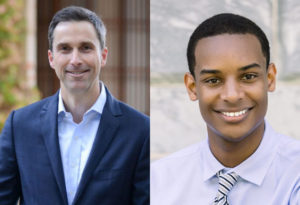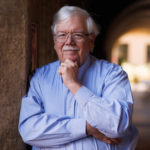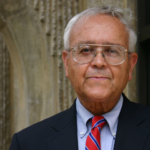SLS Faculty Weigh In on Recent SCOTUS Decisions in Roundup of the 2021 Term
In this roundup, Stanford Law School faculty members offer commentary on key SCOTUS decisions from this year’s term (beginning Oct., 2021), offering critical analysis.
West Virginia v. EPA Decision on June 30, 2022

Stanford’s Deborah Sivas on Supreme Court’s Decision to Limit EPA’s Powers to Fight Climate Change by Professor Deborah Sivas
In a 6 to 3 vote, the U.S. Supreme Court’s decision in West Virginia v. EPA reduced the powers of the Environmental Protection Agency (EPA) to regulate without “clear congressional authorization.” With divided and often stalled government, what does this mean for environmental protections in the U.S. and climate change measures generally? Here, Stanford Law School Professor Deborah Sivas, an environmental law expert, discusses the implications of the decision.
Can you explain the key points of today’s ruling? I understand that the Court was considering powers granted to it by the Clean Air Act and adopted a narrow reading of it.
The Clean Air Act is the primary statutory authority under which EPA regulates greenhouse gas emissions, as the Supreme Court itself acknowledged in Massachusetts v. EPA. Power plants account for about one quarter of U.S. greenhouse gas emissions. In 2015, EPA exercised its authority under section 111 of the Clean Air Act to set performance standards for existing power plants, including coal-fired power plants. Those standards, which became known as the Clean Power Plan rule, involved both “heat rate improvements” to increase coal power plant efficiency (which does not actually achieve much emissions reduction) and “generation shifting” improvements (switching to natural gas or renewable production). Read more »
West Virginia v. EPA and the Future of the Administrative State by Professor David Freeman Engstrom and John Priddy

On Thursday June 30th, the U.S. Supreme Court handed down its decision in West Virginia v. EPA, applying a newly robust form of the “major questions” doctrine to limit the Environmental Protection Agency’s (“EPA”) authority to regulate greenhouse gas emissions. Here, Stanford Law Professor David Freeman Engstrom, an expert in administrative law, and John Priddy, a member of the Stanford Law School class of 2023, discuss the Court’s ruling and its implications for climate policy and the future of the administrative state.
What is at issue in this case, and how did it get before the Court?
The case has one of those ping-ponging procedural histories that have become all-too-common in our politically polarized times. Read more »
Oklahoma v. Castro-Huerta Decision on June 29, 2022
Conquest in the Courts by Professor Elizabeth Hidalgo Reese

(Originally published by The Nation on July 6, 2022)
On June 29, the Supreme Court issued a bizarre and horrifying decision. In Oklahoma v. Castro-Huerta, a 5-4 Supreme Court majority held that a state can prosecute crimes against Indian victims by non-Indian people even if those crimes occur on Indian reservations. More concerning, however, is why the court said that states have this power. As Justice Brett Kavanaugh wrote: “The Court today holds that Indian country within a State’s territory is part of a State, not separate from a State,” reasoning that “as a matter of state sovereignty, a State has jurisdiction over all of its territory, including Indian country.”
(Continue reading the opinion essay on The Nation’s page here.)
The Supreme Court Strikes Again — This Time At Tribal Sovereignty by Professors Elizabeth Hidalgo Reese and Gregory Ablavsky
(Originally published by The Washington Post on July 1, 2022)

Amid many momentous decisions from the Supreme Court in the final week of its term, the importance of Oklahoma v. Castro-Huerta — a jurisdictional fight involving Indian reservations — may go overlooked. But its effects will reach far beyond Oklahoma and its land disputes.
The 5-to-4 decision, released Wednesday, blunts the effects of the court’s 2020 ruling in McGirt v. Oklahoma, which reinforced that much of Oklahoma was, legally, Indian country, where many crimes were beyond the reach of the state and its laws. With its new, sweeping ruling, the court reinstates a piece of Oklahoma’s pre-McGirt power over this territory by upending the law on reservations throughout the country.
(Continue reading the opinion essay on The Washington Post’s page here.)
Viking River Cruises, Inc. v. Moriana Decision on June 15, 2022
Viking River Cruises and the Future of Workplace Regulation by Professor David Freeman Engstrom and Catherina Yue Xu

On Wednesday, June 15th, the U.S. Supreme Court interpreted the Federal Arbitration Act (FAA) to block employee lawsuits against employers for workplace violations under the California Private Attorney General Act (PAGA). Here, Stanford Law Professor David Freeman Engstrom and Catherina Xu, a member of the Stanford Law School class of 2024, discuss the Court’s ruling in Viking River Cruises v. Moriana and its implications for the policing of employer misconduct.
What is the California Private Attorney General Act?
PAGA is a state law that deputizes employees as private attorneys general to enforce California labor laws—and those laws, in turn, entitle employees to everything from minimum wage, to overtime, to breaks for meals. Under PAGA, if an employer violates California’s labor laws, an employee can bring an aggregated action against the employer—not just on her own behalf but also on behalf of her co-workers—and obtain civil penalties that would normally be recoverable only by the State. The result is a nifty California-specific whistleblower law that leverages an employee’s insider information about workplace violations while providing an attractive alternative to enforcement actions by resource-strapped state agencies. Read more »
New York State Rifle & Pistol Assn., Inc. v. Bruen Decision on June 23, 2022
Packed and Loaded: Stanford’s John Donohue on Supreme Court’s Guns Decision by Professor John J. Donohue III

On June 23, the Supreme Court ruled 6 to 3 to strike down New York’s law restricting the right of individuals to carry firearms outside of the home, expanding the scope of the individual constitutional right to keep and bear arms to American public life. The Second Amendment, Justice Clarence Thomas wrote for the majority, protects “an individual’s right to carry a handgun for self-defense outside the home.” Here, Stanford Law School’s John Donohue, an expert in gun law, discusses the decision.
What is the main takeaway from today’s decision? How does it expand an individual’s right to carry arms outside of the home?
In 2008, the Supreme Court issued the landmark Heller decision striking down the handgun ban of the District of Columbia, while stating that the core of the Second Amendment is the right to protect oneself with a gun inside one’s home. Today the Court in Bruen expanded the scope of the Second Amendment in striking down a 109-year-old law in New York state that restricted carrying of guns outside the home to those with a particularized need to carry a weapon. The Court reversed its earlier language by announcing that the core of the Second Amendment is the right to have a gun within reach for self-defense, whether it is inside or outside the home. Read more »
The Supreme Court’s Gun Decision Will Lead To More Violent Crime by Professor John J. Donohue III
Whatever one’s view of the best way to interpret the Second Amendment, we unfortunately know what effects this ruling will have in the relatively few states that still restrict the carrying of weapons (such as New York, California, New Jersey and Massachusetts).
(Continue reading the opinion essay on The Washington Post’s page here.)
Gallardo v. Marstiller Decision on June 6, 2022
Stanford Law Experts on the Supreme Court’s Medicaid Decision and What it Means for the Future of Personal Injury Litigation by Professor Nora Freeman Engstrom and Graham Ambrose

On Monday June 6th, the U.S. Supreme Court interpreted the federal Medicaid Act to rule that a state, exercising its right of subrogation, can recoup not just past but also future medical expenses from Medicaid beneficiaries, when those beneficiaries have prevailed in tort. Here, Stanford Law Professor Nora Freeman Engstrom, an expert in tort law, and Graham Ambrose, a member of the Stanford Law School class of 2024, discuss the Court’s ruling in Gallardo v. Marstiller and its implications for the personal injury compensation system.
The plaintiff in this case is Gianinna Gallardo. Who is she?
On November 19, 2008, Gianinna Gallardo, a 13-year-old student from Florida, stepped off her school bus and was struck by a truck. She suffered catastrophic injuries. Florida’s Medicaid agency covered her initial medical expenses, which totaled $862,688. Today, Gallardo remains in a permanent vegetative state. An expert evaluated Gallardo and found that her pecuniary losses will exceed $20 million. But Gallardo’s parents eventually settled a lawsuit against the truck driver, the truck’s owner, and their local public school board for only $800,000. Read more »
Dobbs v. Jackson Women’s Health Organization Decision on June 24, 2022
A Constitutional Earthquake: Stanford’s Jane Schacter on SCOTUS Decision to Overturn Roe v. Wade, Ending Constitutional Right to an Abortion by Professor Jane Schacter

When I was asked to comment on the leak of today’s opinion back in May, I said it would be a constitutional earthquake if the final opinion followed the draft. Today’s decision is indeed seismic, closely tracking the draft and laying waste to a half-century of constitutional law protecting a woman’s right to control her body and to make a profound decision affecting the course of her life. In a sweeping opinion, that right is gone and it is now up to state legislators to tell women what they can and cannot do with their bodies and, if a majority of those legislators deem it appropriate, to force them to continue unwanted pregnancies. Under this regime, no matter the reason a woman seeks to terminate a pregnancy—including because her health is jeopardized, because she was raped, because the fetus has a condition making death likely shortly after birth—a majority of state legislators may usurp that deeply personal decision. It is a stunning reversal. The Court overrules not only Roe v. Wade itself, but the 1992 decision in Casey v Planned Parenthood that provided an extended, thoughtful analysis of why Roe should not be overruled. Justices Breyer, Sotomayor, and Kagan wrote an impassioned joint dissent, and the Chief Justice—no supporter of abortion rights—called for the Court to proceed more incrementally and carefully. All to no avail, so the decision to overrule Roe completely is by a bare majority of 5-4. Read more »
Dobbs and the Supreme Court’s Wrong Turn on Constitutional Rights by Professor Bernadette Meyler
(Originally published by Bloomberg Law on June 24, 2022)

The US Supreme Court has produced the sea change in constitutional law that many expected since the hasty confirmation of Justice Amy Coney Barrett in the wake of Justice Ruth Bader Ginsburg’s death. Most immediately, the Supreme Court overturned the constitutional right to choose an abortion pronounced in 1973 in Roe v. Wade. In the longer term, the court’s decisions transform how we should expect it to understand constitutional rights going forward. And the news is not good.
In both its decision striking down New York State’s gun licensing regime as a violation of the Second Amendment right to bear arms and in Dobbs v. Jackson Women’s Health Organization, the abortion case overturning Roe, the high court tightly tethered the availability of a right to a historical analysis.
(Continue reading the opinion essay on Bloomberg Law’s page here.)
How California Can Become a Nation-State for Abortion Rights by Professor Bernadette Meyler
(Originally published by San Francisco Chronicle on June 25, 2022)
Former Gov. Arnold Schwarzenegger often referred to California as a “nation-state.” Like a nation-state, California has often carved its own path on policy matters, coordinating with states like New York or even other countries rather than with the federal government.
California has forged innovative policy by diverging from federal law in many arenas. It has demonstrated time and again the potential of federalism — the division of powers between the states and the federal government — to support left-leaning action. It has crafted environmental policy and cap-and-trade programs in coordination with international governments. It has explicitly resisted contrary federal laws and policies in moving early to legalize medical marijuana and, more recently, to counter Trump-era immigration restrictions through sanctuary city policies.
(Continue reading the opinion essay on San Francisco Chronicle’s page here.)
Stanford’s Bernadette Meyler on Possible SCOTUS Decision to Overturn Roe v. Wade by Professor Bernadette Meyler
In an unusual leak from the U.S. Supreme Court, a draft memo written by Justice Samuel Alito, shows the Court poised to overrule the landmark 1973 decision Roe v. Wade, which makes abortions legal throughout the U.S. Here, Constitutional law scholar Professor Bernadette Meyler, discusses the leaked Dobbs v. Jackson Women’s Health Organization memo and the implications of a possible decision. Read more »
Protecting the Privacy of Reproductive Health Information After the Fall of Roe v Wade by Professor Michelle Mello
(Originally published by The Journal of the American Medical Association (JAMA) on June 30, 2022)

The Supreme Court’s decision in Dobbs v Jackson’s Women’s Health Organization, eliminating federal protection for abortion rights recognized since 1973 in Roe v Wade, will trigger the adoption and enforcement of numerous state laws banning or restricting abortion. The most pressing concerns for physicians and health care facilities are how to minimize these laws’ adverse effects on patients and provide quality reproductive health care within legal limits.1 Yet, another vital issue also merits attention: How can clinicians and facilities protect their patients—and themselves—from having reproductive health information used to incriminate them?
(Continue reading the opinion essay on JAMA’s page here.)
Federal Government Will Help States Punish Abortion — Using Our Phones by Research Scholar Riana Pfefferkorn
(Originally published by The Hill on July 1, 2022)

On June 24, the Supreme Court officially overturned Roe v. Wade, taking away the formal legal right to an abortion that it had previously declared in 1973. According to the Guttmacher Institute, following the court’s decision in Dobbs v. Jackson Women’s Health Organization, 26 states immediately banned abortion or are likely to do so soon. While there has been much discussion about how investigators in those states will leverage digital data against people suspected of having or performing abortions, one startling fact has gone unnoticed: The federal government is poised to lend those states a hand.
(Continue reading the opinion essay on The Hill’s page here.)
Legal Analysis of the Decision by Professor Hank Greely
(Originally published by Palo Alto Weekly on June 25, 2022)

Stanford Law School Professor Henry T. (Hank) Greely, director of Stanford Center for Biomedical Ethics, predicted during an interview just prior to Friday’s decision that the court would completely overturn Roe v. Wade and say there is no federal constitutional right to an abortion.
(Continue reading the opinion essay on Palo Alto Weekly’s page here.)
Further Analysis

In an unusual leak from the U.S. Supreme Court, a draft memo shows the Court has decided to overrule Roe v. Wade, the landmark 1973 decision which made abortion legal throughout the U.S. What does this mean for women seeking abortions in the U.S.? Are other rights, like same-sex marriage under threat? And what does this say about the politicization of the Court? Constitutional law expert Bernadette Meyler joins this episode to discuss these questions and more.

Nearly ten years after the massacre of 26 students and teachers at Sandy Hook Elementary School in Connecticut, the world has been shocked by another American school shooting—this one at Robb Elementary School in Uvalde, Texas where 19 students and two teachers were gunned down on May 24. That came barely a week after the racially motivated massacre of ten shoppers at a Tops Friendly Market in a predominantly Black neighborhood in Buffalo, New York. And these are only the most lethal mass shootings—hundreds more have already occurred in cities across the United States. In this episode, Professor John Donohue, an expert on gun law, joins Rich and Joe to discuss what can be done to meet this uniquely American challenge of mass shootings.

Just as pandemic fatigue is setting in and the Omicron variant is sweeping across the nation—putting a tremendous strain on America’s healthcare infrastructure—the Supreme Court heard arguments in challenges to the Biden administration’s authority to combat the COVID-19. Labor law expert Professor William B. Gould IV joins Joe and Rich to discuss challenges to the administration’s efforts to impose vaccine mandates—and trends in the American labor market during the pandemic.

Larry Kramer, former SLS dean and author of “The People Themselves: Popular Constitutionalism and Judicial Review,” discusses the Supreme Court and the development of its modern day political position and strength with the NYT’s Ezra Klein.
